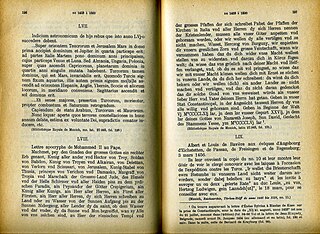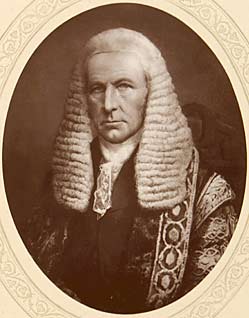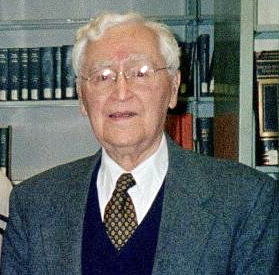Life
Born at Millbrook, Hampshire, [1] and later moved to Berkshire, he was admitted as a sizar of St John's College, Cambridge, 8 July 1824, graduated B.A. with a first class in the classical tripos in 1831, and M.A. in 1844. [2] After leaving Cambridge he studied for a while under Barthold Georg Niebuhr at the University of Bonn. He was ordained by Charles James Blomfield in 1839, and a few years later was made her majesty's inspector of church schools. [3]
In 1857 Cook was appointed chaplain-in-ordinary to the queen, in 1860 he became preacher at Lincoln's Inn, in 1864 canon-residentiary at Exeter Cathedral (replacing Harold Browne), and in 1869 chaplain to the bishop of London. [3]
Cook was made precentor of Exeter Cathedral in 1872. He resigned his preachership at Lincoln's Inn in 1880. He was an invalid during the last years of his life, and died at Exeter on 22 June 1889. He left his library to the cathedral chapter. [3]
Works
Cook issued in 1849 his Poetry for Schools. Around 1864, when the liberal theology of the Essays and Reviews and John Colenso was prominent, John Evelyn Denison suggested the Church of England reply with biblical apologetics. A commission was formed, after consultation with the bishops, which divided the Bible into eight sections, and for each section chose scholars to provide commentary. The editorship of the whole work [4] (10 volumes), which became known as The Speaker's Commentary, was given to Cook, and it appeared 1871 to 1882. [3] [5]
The Apocrypha were treated separately under the editorship of Henry Wace in 1888. The Commentary came under attack: the portions by Harold Browne on the Pentateuch were criticised by Colenso, Abraham Kuenen, and others. [3]
| Volume | Year | Contents |
|---|
| I part I Genesis-Exodus [6] | 1871 | The Pentateuch and Genesis by Edward Harold Browne, [7] Exodus by Cook, (Egyptian Words by Charles Wycliffe Goodwin [8] is given as one of two essays by Cook) |
| I part II Leviticus-Deuteronomy [6] | 1871 | Leviticus by Samuel Clark, Numbers (Thomas Espinell Espin from work of Joseph Francis Thrupp), [9] Deuteronomy by Espin |
| II Joshua-I Kings [6] | 1872 | Joshua by T. E. Espin, Judges, Ruth and I and II Samuel, I Kings by George Rawlinson |
| III II Kings-Esther [6] | 1875 | II Kings; I and II Chronicles, Ezra, Nehemiah and Esther by George Rawlinson |
| IV Job-The Song of Solomon [6] | 1875 | Job by Cook, Psalms by Cook, Charles John Elliott and George Henry Sacheverell Johnson, Proverbs by Edward Hayes Plumptre, Ecclesiastes by William Thomas Bullock, Song of Solomon by Thomas Luck Kingsbury |
| V Isaiah-Lamentations [6] | 1875 | Isaiah by William Kay, Jeremiah and Lamentations by Robert Payne Smith [10] |
| VI Ezekiel, Daniel and the minor prophets [6] | 1876 | Ezekiel by George Currey, [11] Daniel by Henry John Rose and John Mee Fuller, Hosea by E. Huxtable, Joel by Frederick Meyrick, Amos by Robert Gandell, Obadiah by Meyrick, Jonah by Huxtable, Micah by Samuel Clark, Nahum by Gandell, Habakkuk by Cook, Zephaniah by Gandell, Haggai by W. Drake, Zechariah by Drake [12] |
| New Testament | | |
| I St Matthew-St Luke [6] | 1878 | The Gospels by William Thomson, Matthew by Henry Longueville Mansel, Mark by Cook, Luke by Basil Jones and Cook [13] |
|
| II St John. The Acts of the Apostles [6] | 1880 | John, Acts of the Apostles by William Jacobson [14] |
| III Romans-Philemon [6] | 1881 | Romans by Edwin Hamilton Gifford, I Corinthians by Thomas Saunders Evans, II Corinthians by Joseph Waite, Galatians by John Saul Howson, Ephesians by F. Meyrick, Philippians by John Gwynn, Colossians and I and II Thessalonians by William Alexander, Timothy and Titus by Wace and John Jackson, Philemon by Alexander [15] |
| IV Hebrews-The Revelation of St John [6] | 1881 | Hebrews by William Kay, James by Robert Scott, I Peter by Cook, II Peter by Joseph Rawson Lumby, I, II and III John by Alexander, Jude by Lumby, Revelation by William Lee |
| Apocrypha | | |
| I Esdras-Wisdom [6] | 1888 | Introduction by George Salmon, I and II Esdras by Joseph Hirst Lupton, Tobit by J. M. Fuller, Judith by Charles James Ball, Rest of Esther by Fuller, Wisdom by Frederic William Farrar |
| II Ecclesiasticus-Bel and the Dragon [6] | 1888 | Ecclesiasticus by Alfred Edersheim, Baruch and Jeremy by E. H. Gifford, Song of the Three Holy Children, History of Susanna and Bel and the Dragon by C. J. Ball |
John Mee Fuller edited a Student's Commentary (1884) based on the work. [16]
Cook himself was a critic of the revised New Testament, in The Revised Version of the First Three Gospels (1882). In The Origins of Religion and Language (1884), he upheld the original unity of speech. He is said to have been acquainted with 52 languages. [3]

Apocrypha are written works, often of unknown authorship or doubtful origin. In Christianity, the word apocryphal (ἀπόκρυφος) was first applied to writings which were to be read privately rather than in the public context of church services -- edifying Christian works which were not considered canonical Scripture. In the wake of the Protestant Reformation, the word apocrypha came to mean "false, spurious, bad, or heretical".

The King James Version (KJV), also the King James Bible (KJB) and the Authorized Version, is an English translation of the Christian Bible for the Church of England, which was commissioned in 1604 and published in 1611, by sponsorship of King James VI and I. The 80 books of the King James Version include 39 books of the Old Testament, an intertestamental section containing 14 books of what Protestants consider the Apocrypha, and the 27 books of the New Testament. Noted for its "majesty of style", the King James Version has been described as one of the most important books in English culture and a driving force in the shaping of the English-speaking world.

The Old Testament is the first division of the Christian biblical canon, which is based primarily upon the 24 books of the Hebrew Bible or Tanakh, a collection of ancient religious Hebrew writings by the Israelites. The second division of Christian Bibles is the New Testament, written in the Koine Greek language.

The Bishops' Bible is an English translation of the Bible which was produced under the authority of the established Church of England in 1568. It was substantially revised in 1572, and the 1602 edition was prescribed as the base text for the King James Version that was completed in 1611.

The Revised Version (RV) or English Revised Version (ERV) of the Bible is a late 19th-century British revision of the King James Version. It was the first and remains the only officially authorised and recognised revision of the King James Version in Great Britain. The work was entrusted to over 50 scholars from various denominations in Great Britain. American scholars were invited to co-operate, by correspondence. Its New Testament was published in 1881, its Old Testament in 1885, and its Apocrypha in 1894. The best known of the translation committee members were Brooke Foss Westcott and Fenton John Anthony Hort; their fiercest critics of that period were John William Burgon and George Saintsbury.

The New Revised Standard Version (NRSV) is an English translation of the Bible published in 1989 by the National Council of Churches. The NRSV was intended as a translation to serve devotional, liturgical and scholarly needs of the broadest possible range of Christian religious adherents. At present, the New Revised Standard Version is the version most commonly preferred by biblical scholars; this is due to its basis on what are often considered the oldest and most reliable manuscripts, and its strict adherence to word-for-word translation.

The Douay–Rheims Bible, also known as the Douay–Rheims Version, Rheims–Douai Bible or Douai Bible, and abbreviated as D–R, DRB, and DRV, is a translation of the Bible from the Latin Vulgate into English made by members of the English College, Douai, in the service of the Catholic Church. The New Testament portion was published in Reims, France, in 1582, in one volume with extensive commentary and notes. The Old Testament portion was published in two volumes twenty-seven years later in 1609 and 1610 by the University of Douai. The first volume, covering Genesis through Job, was published in 1609; the second, covering Psalms to 2 Maccabees plus the three apocrypha books of the Vulgate appendix following the Old Testament was published in 1610. Marginal notes took up the bulk of the volumes and had a strong polemical and patristic character. They offered insights on issues of translation, and on the Hebrew and Greek source texts of the Vulgate.

The American Standard Version (ASV), officially Revised Version, Standard American Edition, is a Bible translation into English that was completed in 1901 with the publication of the revision of the Old Testament. The revised New Testament had been released in 1900. It was previously known by its full name, but soon came to have other names, such as the American Revised Version, the American Standard Revision, the American Standard Revised Bible, and the American Standard Edition.

Robert Montgomery (1807–1855) was an English poet and minister, the natural son of Robert Gomery (1778-1853), an actor and clown, and Elizabeth Meadows Boyce, a schoolteacher. He was born in Bath, Somerset, and educated at a private school in the city. Later, he founded an unsuccessful weekly paper in that city. In 1828 he published The Omni-presence of the Deity, which hit popular religious sentiment so exactly that it ran through eight editions in as many months. In 1830 he followed it with The Puffiad, and Satan, or Intellect without God. An exhaustive review in Blackwood's by John Wilson, followed in the thirty-first number by a burlesque of Satan, and two articles in the first volume of Fraser, ridiculed Montgomery's pretensions and the excesses of his admirers. But his name was immortalized by Macaulay's famous onslaught in the Edinburgh Review for April 1830, "an annihilating so Jove-like that the victim automatically commands the spectator's rueful sympathy." This review did not, however, diminish the sale of his poems; The Omnipresence of the Deity reached its 28th edition in 1858. In 1830 Montgomery entered Lincoln College, Oxford, graduating B.A. in 1833 and M.A. in 1838. Taking holy orders in 1835 he obtained a curacy at Whittington, Shropshire, which he exchanged in 1836 for the charge of the church of St. Jude, Glasgow. In 1843 he removed to the parish of St. Pancras, London, when he was minister of Percy Chapel.
Early Modern English Bible translations are those translations of the Bible which were made between about 1500 and 1800, the period of Early Modern English. This was the first major period of Bible translation into the English language including the King James Version and Douai Bibles. The Reformation and Counter-Reformation led to the need for Bibles in the vernacular with competing groups each producing their own versions.

The New Testament apocrypha are a number of writings by early Christians that give accounts of Jesus and his teachings, the nature of God, or the teachings of his apostles and of their lives. Some of these writings were cited as scripture by early Christians, but since the fifth century a widespread consensus has emerged limiting the New Testament to the 27 books of the modern canon. Roman Catholic, Eastern Orthodox, and Protestant churches generally do not view the New Testament apocrypha as part of the Bible.

John Evelyn Denison, 1st Viscount Ossington, PC was a British statesman who served as Speaker of the House of Commons from 1857 to 1872. He is the eponym of Speaker Denison's rule.

The Letter of Jeremiah, also known as the Epistle of Jeremiah, is a deuterocanonical book of the Old Testament; this letter is attributed to Jeremiah to the Jews who were about to be carried away as captives to Babylon by Nebuchadnezzar. It is included in Roman Catholic Bibles as the final chapter of the Book of Baruch. It is also included in Orthodox Bibles as a separate book, as well as in the Apocrypha of the Authorized Version.

Bruce Manning Metzger was an American biblical scholar, Bible translator and textual critic who was a longtime professor at Princeton Theological Seminary and Bible editor who served on the board of the American Bible Society and United Bible Societies. He was a scholar of Greek, New Testament, and New Testament textual criticism, and wrote prolifically on these subjects. Metzger was one of the most influential New Testament scholars of the 20th century. He was elected to the American Philosophical Society in 1986.

The biblical apocrypha denotes the collection of apocryphal ancient books thought to have been written some time between 200 BC and AD 400. The Roman Catholic, Eastern Orthodox and Oriental Orthodox churches include some or all of the same texts within the body of their version of the Old Testament, terming them deuterocanonical books. Traditional 80-book Protestant Bibles include fourteen books in an intertestamental section between the Old Testament and New Testament called the Apocrypha, deeming these useful for instruction, but non-canonical. To this date, the Apocrypha are "included in the lectionaries of Anglican and Lutheran Churches". Anabaptists use the Luther Bible, which contains the Apocrypha as intertestamental books; Amish wedding ceremonies include "the retelling of the marriage of Tobias and Sarah in the Apocrypha". Moreover, the Revised Common Lectionary, in use by most mainline Protestants including Methodists and Moravians, lists readings from the Apocrypha in the liturgical calendar, although alternate Old Testament scripture lessons are provided.

Moffatt, New Translation (MNT) is an abbreviation of the title The Holy Bible Containing the Old and New Testaments, a New Translation by James Moffatt.

The term Catholic Bible often refers to a Christian Bible that includes the whole 73-book canon recognized by the Catholic Church, including some of the deuterocanonical books : those of the Old Testament which are in the Greek Septuagint collection but not in the Hebrew Masoretic Text collection. The term may also refer to a version of the Bible which has been approved for publication in accordance with Catholic Canon Law.

A Protestant Bible is a Christian Bible whose translation or revision was produced by Protestants. Such Bibles comprise 39 books of the Old Testament and 27 books of the New Testament for a total of 66 books. Some Protestants use Bibles which also include 14 additional books in a section known as the Apocrypha bringing the total to 80 books. This is often contrasted with the 73 books of the Catholic Bible, which includes seven deuterocanonical books as a part of the Old Testament. The division between protocanonical and deuterocanonical books is not accepted by all Protestants who simply view books as being canonical or not and therefore classify books found in the deuterocanon, along with other books, as part of the Apocrypha.
Richard J. Coggins was a British biblical commentator, notable for his contributions to The Cambridge Bible Commentaries.
Joseph Rawson Lumby (1831–1895) was an English cleric, academic and author and divine, Norrisian Professor of Divinity from 1879 and then Lady Margaret's Professor of Divinity from 1892.
![]() This article incorporates text from a publication now in the public domain : "Cook, Frederic Charles". Dictionary of National Biography (1st supplement). London: Smith, Elder & Co. 1901.
This article incorporates text from a publication now in the public domain : "Cook, Frederic Charles". Dictionary of National Biography (1st supplement). London: Smith, Elder & Co. 1901.













